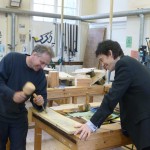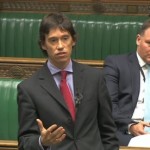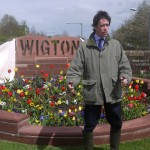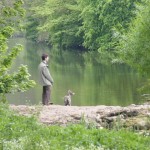Transcript
I find this a very powerful, very troubling and very worrying motion. It states:
“That this House supports the continued deployment of UK armed forces in Afghanistan.”
If one were to remove the word “continued”, there is nobody in this House who would oppose the motion. Every Member, day by day, feels more admiration for what our soldiers achieve, more respect for the sacrifices that they have made and more pride in what they represent for our country. But the danger of the motion is that it is black and white: it sets up an opposition between the terms “increase” and “withdraw”, and between “engagement” and “isolation”. It creates a world in which people are tempted to say, either, “Afghanistan is the most important country in the world, the central, existential threat,” or, “It doesn’t matter at all.”
There are two central questions. How much does Afghanistan matter? And what can we do about it? We have heard Members from both sides of the House make eloquent arguments about the significance and importance of Afghanistan, and it matters in five main ways. They should not be trivialised, because Afghanistan does, in a sense, matter.
First, Afghanistan matters in terms of counter-terrorism and 9/11. It was the place from which the 9/11 attacks were planned. Secondly, Afghanistan matters enormously in terms of narcotics. It produces the majority of the world’s heroin. Thirdly, Afghanistan matters for us and our credibility. For nine years we have pinned our reputation and that of our allies to this adventure. Fourthly, as people have said, Afghanistan matters to Pakistan. There is an extent to which Afghanistan will have an influence on that state, which, as we have heard, is nuclear-armed, unstable and has jihadist elements. Finally, Afghanistan matters to its own people. Nobody in the Chamber wants the Taliban to take over, and nobody is in any doubt that they represent a brutal, horrendous and cruel form of government-utterly discredited from 1996 to 2001.
Paul Flynn (Newport West) (Lab) : With the help of my hon. Friend the Member for Islington North (Jeremy Corbyn), I have just checked the record for 2001, when I intervened on the then Minister and said that there was no chance of reducing the flow of heroin from Afghanistan, which then stood at 90% of the world’s production. The current figure is still 90%. What improvement has there been?
Rory Stewart: I thank the hon. Gentleman very much for his intervention, because it leads beautifully on to the second part of my speech. What can we do about the problem? Neither he, I, nor anyone in the Chamber doubts that there is a problem, but what can we do?
The answer has been gone over again and again, and General McChrystal has an answer in his report. What have we done? Broadly speaking, over the past nine years we have had successes in health, education, counter-terrorism, rural development and urban regeneration. We have had a series of other things, which we like to describe as challenges-in counter-narcotics, as the hon. Gentleman said, in counter-insurgency when fighting the Taliban, in the rule of law, in governance, in anti-corruption and in state building. And we have come to the conclusion that we have a talisman, a way of dealing with Afghanistan and a new solution, which is in that report and is called counter-insurgency warfare strategy.
We must wish the surge all our best. We have embarked on it and are committed to it, and that is where we are going. So let us hope that it works-however, there is a very real reason to believe that it may not, within the time frame that General McChrystal anticipated or predicted. In other words, when at the end of this year General Petraeus reviews the strategy, and when in the middle of next year President Obama begins the draw-down of troops, it is unlikely that we will have achieved McChrystal’s two main conditions: sufficient pain inflicted on the Taliban for them to wish to go to the negotiating table; and, on the other hand, the creation of a stable, effective and legitimate state.
It is not the place of this House to talk about why those things are not possible, and we do not have time to talk about why we did not succeed. The central element is nothing to do with the British or American troops; it is to do with the Afghan Government. General McChrystal has said from the beginning that the only way we will win in Afghanistan is with a stable, effective, legitimate Afghan state. Without that, we are not going to win, and such a state is not emerging. Does that mean we can do nothing in that country? No-we can do an enormous amount, but we cannot crush the Taliban and create a stable, effective, legitimate Afghan state.
Jonathan Edwards (Carmarthen East and Dinefwr) (Plaid Cymru) : Is not another way forward to create a new constitution for Afghanistan that decentralises power to the ethnic groups in different regions instead of centralising power in the hands of one President who is very corrupt?
Rory Stewart: I thank the hon. Gentleman for that intervention. Of course, Afghans must be allowed to do their own politics, and whether they have a decentralised or a centralised state or recognise ethnic boundaries is up to them. Our role is to accept the limits of our power and accept that there are things we cannot do. There are things we can do, but they have nothing to do with troop surges or counter-insurgency. We must find a moment-this is why the 2015 deadline is absolutely correct-at which we say about the current strategy, “Enough, no more. We’ve done enough.”
What then will we do after 2015? I suggest that with the end of UK combat operations in Afghanistan, we concentrate on three things: continuing limited counter-terrorism operations; continuing to support development projects, probably in the centre and the north of the country; and continuing to try to ensure a political solution, or, to put it another way, to decrease the likelihood of a civil war and increase the likelihood of a political solution by gaining leverage over the Taliban.
Is this as scary as we believe? Is this really the nightmare we have conjured? No. The Taliban are unlikely to be able to take over Afghanistan, because this is not the mid-1990s. This is not groundhog day-we are not repeating 1996. In 1996, when the Taliban came swarming into Kabul, mujaheddin were shelling each other in the centre of the city, the Afghan people were appalled by years of corrupt, abusive government, and the Taliban were untested-and there were no foreign troops on the ground.
Today we are in a completely different situation. The Taliban are discredited from the time when they were in government. There is much more coherence between the central and northern groups. There is very little likelihood of the Taliban being able to present a conventional threat. If they try to roll artillery or tanks up the main streets, as they did then, we can deal with that. That does not mean that they are not going to increase their presence in the south and east of the country-they almost certainly will. But even if they do, it is extremely unlikely that they will invite back al-Qaeda in the way that they did in 2001. From their point of view, that was their No. 1 mistake. If they had not invited in al-Qaeda, they would still be in power. Even if they do invite back al-Qaeda, it is something that we can manage. We have the willpower, the technology and the public support to deal with it in a way that we did not in the 1990s.
Derek Twigg (Halton) (Lab) : The hon. Gentleman seems to be suggesting-I have heard this in a number of spheres-that we abandon the south-west and south-east of the country and that the Taliban will move back, but they will not be as bad as they were last time. I do not know what evidence he or those who are pursuing this strategy have for that. He will recall that the Taliban started off in a very localised way in Kandahar and then moved up the country, and never once has there been peace throughout the country. I do not see how we can have trust in that situation starting again.
Rory Stewart: I thank the hon. Gentleman. I am not suggesting that the Taliban are nice people. These threats, and the fears and worries that we have, are very real. The Taliban are horrendous people. Terrorist threats from Afghanistan are genuine, as are the threats to Pakistan, to our credibility and to the Afghan people. However, the point is that “ought” implies “can”. We do not have a moral obligation to do what we cannot do. After nine years, we have failed to demonstrate that the Afghan Government can take over control. Our troops can fight all they want, and they do it very well, but when we withdraw, the Afghan Government will not be robust enough to take over. We therefore need to accept that rather than what I, and the hon. Gentleman, would like, which is being able to guarantee the Taliban’s disappearance, we need to contain and manage the situation.
What does this mean for UK foreign policy? It means beginning a new approach where we recognise-this is the central point that we would all agree on-that we have other priorities in the world. Afghanistan is not the be-all and end-all. We cannot bet all our money and all our troops on this one place. Pakistan matters more in terms of terrorism, Egypt matters more in terms of regional stability, and sub-Saharan Africa matters more in terms of poverty, and that is before we get on to Iran, North Korea or China. The lesson that we should take, and the reason why the 2015 deadline is correct, is that we should recognise the limits of our knowledge, power and legitimacy. And understand that although we cannot do as much as we pretend, we can do much more than we fear. The only wisdom is the wisdom of humility.









